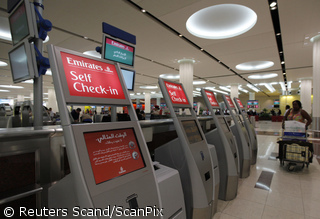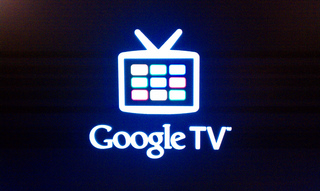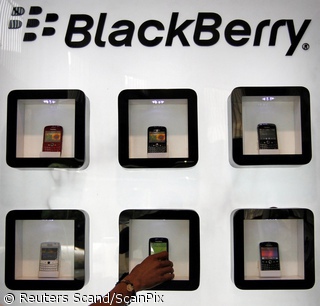The difference between spam and desired e-mail is whether the user has previously transacted business with the sender.
Published:
2 May 2003 y., Friday
While the panelists at the Federal Trade Commission's Spam Forum argue this week over just what, exactly, should be considered as spam, a new survey shows American business e-mail users have no such quibbles: the difference between spam and desired e-mail is whether the user has previously transacted business with the sender.
The survey, conducted by political and public affairs research firm Public Opinion Strategies for SurfControl, a Web and e-mail filtering firm, shows 54 percent of respondents said that unsolicited mass e-mail from a company they've done business with in the past is not spam. Everything else tested in the poll was considered spam.
An overwhelming majority of business users (86 percent), also say they favor legislation sponsored by Senators Conrad Burns and Ron Wyden that would outlaw spam that hides the identity of the sender or misleads the recipient on the content of the e-mail.
In addition to supporting the legislation, more than eight out of ten, 85 percent, say they would support their company using technology to control spam. Even among the small percentage of people who oppose a federal anti-spam law, 77 percent say they support using anti-spam technology at their company.
Šaltinis:
dc.internet.com
Copying, publishing, announcing any information from the News.lt portal without written permission of News.lt editorial office is prohibited.
The most popular articles
Software company announced new structure_ of it_s business.
more »
 Unisys Corporation (NYSE: UIS) announced enhancements to its Baggage Reconciliation System (BRS) featuring more detailed information about baggage handling requirements for incoming flights, real-time monitoring and alerts of service level agreements (SLAs), and a mobile app to provide passengers with live updates on when and where to collect their bags.
more »
Unisys Corporation (NYSE: UIS) announced enhancements to its Baggage Reconciliation System (BRS) featuring more detailed information about baggage handling requirements for incoming flights, real-time monitoring and alerts of service level agreements (SLAs), and a mobile app to provide passengers with live updates on when and where to collect their bags.
more »
 Samsung doubled its share of the tablet PC market in the last three months of 2012, research firm IDC has said.
more »
Samsung doubled its share of the tablet PC market in the last three months of 2012, research firm IDC has said.
more »
 Facebook boss Mark Zuckerberg has strongly denied the social network is planning to release its own phone.
more »
Facebook boss Mark Zuckerberg has strongly denied the social network is planning to release its own phone.
more »
 The OnLive gaming service is to be made available to Google TV users, following a deal with electronics firm LG. One of a handful of firms making hardware for Google TV. LG's G2 series sets have Google's TV service built in.
more »
The OnLive gaming service is to be made available to Google TV users, following a deal with electronics firm LG. One of a handful of firms making hardware for Google TV. LG's G2 series sets have Google's TV service built in.
more »
 Blackberry has become the latest smartphone to offer free wi-fi calls to users via its own software. Research In Motion (RIM) has added the facility to its Blackberry Messenger (BBM) app, which already offered an alternative to text messages.
more »
Blackberry has become the latest smartphone to offer free wi-fi calls to users via its own software. Research In Motion (RIM) has added the facility to its Blackberry Messenger (BBM) app, which already offered an alternative to text messages.
more »
 We are delighted to announce that on 26th of January SafeNet Sentinel Cloud was awarded the SiiA 2012 Best Digital Rights Management Solution!
more »
We are delighted to announce that on 26th of January SafeNet Sentinel Cloud was awarded the SiiA 2012 Best Digital Rights Management Solution!
more »
 The Spanish government has approved tough new legislation which could see websites deemed to be trading in pirated material blocked within ten days.
more »
The Spanish government has approved tough new legislation which could see websites deemed to be trading in pirated material blocked within ten days.
more »
 The Los Angeles World Airports (LAWA), which oversees airport operations for the city of Los Angeles, has awarded a contract modification to Unisys (NYSE: UIS) to upgrade its access control and alarm monitoring system, used to identify the 45,000 airport employees, contractors, police and others who work at the organization’s three airports.
more »
The Los Angeles World Airports (LAWA), which oversees airport operations for the city of Los Angeles, has awarded a contract modification to Unisys (NYSE: UIS) to upgrade its access control and alarm monitoring system, used to identify the 45,000 airport employees, contractors, police and others who work at the organization’s three airports.
more »
 Unisys Corporation (NYSE: UIS) today announced Version 2 of its Unisys Secure Private Cloud Solution, the company’s flagship cloud solution for clients’ and cloud service providers’ data centers.
more »
Unisys Corporation (NYSE: UIS) today announced Version 2 of its Unisys Secure Private Cloud Solution, the company’s flagship cloud solution for clients’ and cloud service providers’ data centers.
more »
 An American blogger has discovered three fake Apple stores operating in Kunming city, China.
more »
An American blogger has discovered three fake Apple stores operating in Kunming city, China.
more »